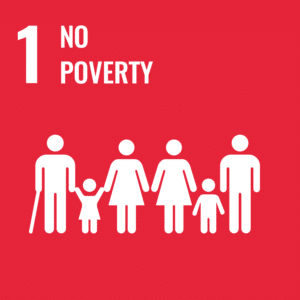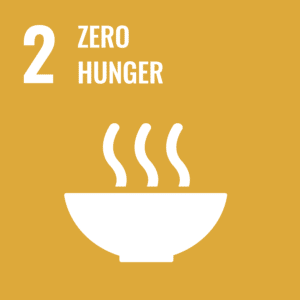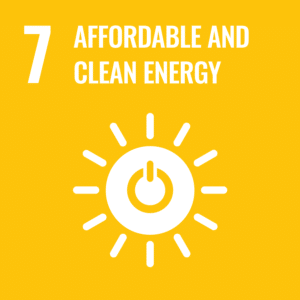State of the market for productive use of energy - case studies from four regions in Burkina Faso
This captivating document presents four case studies from Burkina Faso, Africa.
These case studies demonstrate...
Title: Renewable Energy for Agricultural Livelihoods in Burkina Faso
Dates: July 2022 – March 2026
Location: Central, south-central, central plateau and west-central regions of Burkina Faso.
Our role: Project implementation lead and facilitator of community engagement (including the most vulnerable).
Participants: 5,000 smallholder farmers, 3 financial institutions and 3 wholesalers engaged.
Value: £1.7 million
Lead Donor: Swedish Embassy
Partners: Tree Aid, SNV (Netherlands Development Organisation), UNCDF (United Nations Capital Development Fund), SOS Sahel, Terre Verte and Provalab.
Agriculture plays a crucial role in Burkina Faso’s economy; it’s the primary source of employment and income, yet its potential is not fully exploited. Renewable energy for productive activities is one way to improve the productivity of small-scale farmers, but most rural areas lack reliable and affordable energy sources.
Despite its importance and potential, agricultural productivity remains low in Burkina Faso and continues to deteriorate. Recurrent droughts are leading to crop failures and food shortages as traditional farming techniques struggle to cope with climate change. Limited diversification coupled with seasonality in crop production often results in production peaks during rainy seasons, while harvests are almost non-existent during the dry periods. As a result, prices fluctuate significantly, leading to short, prosperous seasons that fail to produce sufficient income and nutritional produce to last throughout the year.
In addition, Burkina Faso is facing a growing population, which puts an increased strain on food availability and the ability to produce it in sufficient quantities. This pressure on food systems is worsened by significant food losses resulting from poor methods of food preservation. Although various storage techniques are utilised, including both traditional and modern approaches, multiple challenges hinder their widespread adoption, for example, inefficiencies in distribution systems.
Practical Action aims to bridge the knowledge gap between the end-users and providers of renewable energy technologies. We will then enable others to replicate our success through knowledge sharing.
Our objective is to demonstrate that using sustainably-produced energy in agriculture is both financially viable and scalable. By doing so, smallholder farmers can improve their livelihoods with our support and our partners’. Our initial focus is on thoroughly assessing Burkina Faso’s agricultural value chains and identifying the specific need for renewable energy technology throughout production, distribution and transformation. By gathering data from the ground, we will demonstrate the demand for these technologies.
In addition, strengthening collaborations among existing market actors will improve access to finance and markets, and increase the adoption of renewable energy among smallholder farmers. Ultimately, these efforts will generate more employment opportunities and higher incomes for agricultural workers.
Additional, complementary initiatives (also funded by the Swedish Embassy) will focus on improving productivity for agricultural and forestry value chains. These include Weoog Paani (which translates as ‘New Forest’); ProvalAB (meaning, ‘Small Dam Agricultural Development Project’ in collaboration with the Burkina Faso Ministry of Agriculture; and Beoog Puuto (meaning ‘Fields of the Future’).
At the end of this pilot programme, 5,000 smallholder farmer families will have benefitted from renewable energy products and services, and received the resources and training needed to improve their income generation activities. Throughout the project implementation stage, we will capture learnings to lay the foundations for a model that can be scaled up, reaching more families in similar situations.
Our collaborative work will also make it possible to attract investments from financial institutions. Working closely with market wholesalers, we will ensure that farmers continue to benefit from essential ‘routes to market’ for their produce. The programme will support the installation of up to 1 megawatt peak (MWp) of clean, off-grid, renewable energy in rural Burkina Faso, and contribute to reducing greenhouse gas emissions by 1,700 tonnes CO2e (carbon dioxide equivalent) per year – the equivalent of removing 400 passenger cars from the road every year.
Our aim is to develop the market for the productive use of energy (PUE) technologies in the agricultural sector, through both a systems-thinking approach, and a participatory market systems development approach.
We hope to see small-scale farmers and low-income communities become more prosperous, increasing their incomes as they adopt new business models which integrate sustainable energy into agricultural value chains.
The project will bring sustainable and inclusive solutions to the challenges that currently limit collaboration between sustainable energy providers and the agricultural sector within Burkina Faso.
We’ll achieve this by:
Finally, the knowledge generated will be shared with all relevant stakeholders to enable continued learning and build on the successes achieved together.
This project contributes to progress towards at least four of the seventeen SDGs.

The project contributes to reducing the proportion of smallholder farmers living in poverty by facilitating access to sustainably produced energy.

This project seeks to increase productivity, incomes, and value-addition practices in many agricultural value chains.

Women farmers’ groups and associations will increase their incomes through solutions that are affordable, accessible, and appropriate to their needs.

Affordable and Clean Energy: Farmers accessing Solar Productive Uses and viable business models will be able to access finance to follow their plans.
This captivating document presents four case studies from Burkina Faso, Africa.
These case studies demonstrate...
Ce document captivant présente quatre études de cas du Burkina Faso, en Afrique.
Ces étud...
